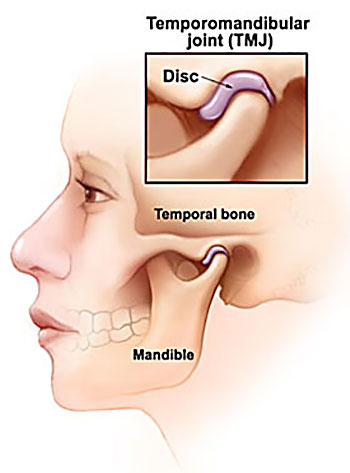Temporomandibular joint (TMJ) disorders, also known as TMJ (temporomandibular joint), are diseases of the temporomandibular joint, muscles, bones, and various nerves involved in chronic facial pain. This includes headaches, neck stiffness, headaches and toothaches, ear pains and tinnitus, and toothaches. It is a very common form of the disease among Americans, and there are many treatments available for TMJ.
The temporomandibular joint, or TMJ, is the joint on your face that connects your lower jaw to your skull. It is located just above the eyes in the mouth area. The temporomandibular joint is also known as the temporomandibular joint. This type of joint is responsible for maintaining the upper jaw and a wide smile. TMJ occurs mainly in adults and is more common in men than women.
There are many causes of temporomandibular joint problems; some are due to misaligned teeth, overuse of maxillary muscles associated with the temporomandibular joint, excessive tooth wear and tooth injury. One of the common problems is jaw instability caused by TMJ. A person with TMJ should see a doctor or dentist to rule out any problems elsewhere in their body.
A person with temporomandibular joint disease (TMJ) has muscle contractions or spasms in the TMJ joint, causing severe pain and discomfort. Symptoms may include pain and clicking when opening and closing the mouth. These symptoms can vary depending on the severity of your TMJ, but they are very serious and require immediate medical attention.
There are several treatments that may be prescribed by a doctor to relieve your pain from this condition. The most common treatment for TMD is to reduce the stress on the joints by performing stretching exercises. For temporary relief of pain, a doctor may recommend anti-inflammatory medicines such as ibuprofen or aspirin.
There are also a number of surgical procedures that are used to correct the condition. In some cases, surgery may be performed in conjunction with medicine. Surgery may be required in a patient suffering from severe TMJ because of severe jaw pain and jaw deformity.

Surgical treatments can correct the joint deformity, but surgery alone is not effective in all cases
Surgery may be used in conjunction with medication for long term management of TMJ.
The majority of cases involving TMD do respond well to medical treatments. Treatment options include physical therapy and counseling. A combination of medications, including exercise, can help treat milder forms of TMJ. There are also various medications to help reduce joint inflammation and other problems. The goal of treatment is to stop or reduce the pain from the symptoms.
Physical therapy and counseling may include the use of a device called a jaw guard to relieve the pain associated with TMJ. This device allows the jaws to move forward and backward so that they are kept in proper position. This device may also reduce pressure on the jaw joint, reducing swelling, and thus reducing the pain. It may also assist with the development of strength in muscles that support the jaw joint.
Medication for TMJ includes medications to help with pain control and some may be used to prevent further complications from developing. the condition.
Medications for TMJ can be purchased at a pharmacy and over the counter. Some people opt to take medications in addition to other forms of treatment. However, there are some medications that must be taken in conjunction with other types of treatment.
Many people who suffer from TMD have found that their TMJ can be helped by the combination of medications and other types of treatment. Although medications are an effective way to treat the symptoms of TMJ, a doctor is still necessary to ensure that any medication being used is effective in treating the condition.